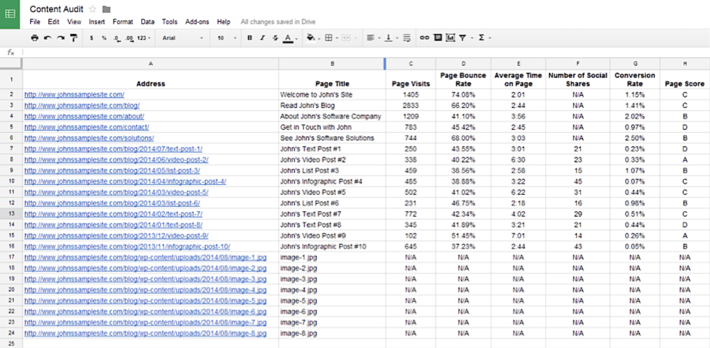With a background in journalism and marketing, Heather is well versed in all things content and inbound marketing. She’s passionate about delivering content that helps her reader take action almost instantly.
Website projects are a big undertaking — not only for the web development company but also for your school. Once the site is completed, it might be tempting to sit back and relax for a while and watch the page views roll in. Unfortunately, the work doesn't stop when the site goes live — from training and content population through to marketing your site and keeping it update, there is a range of tasks that your school needs to put into place.
Here's a summary of what you need to keep in mind once your new website project comes to a close.
Submit your site to Google Search Console
This is a crucial step to ensuring that your website will show up in Google search results as quickly as possible. We suggest registering your website in a free program called Google Search Console and submitting your XML sitemap. Doing this gives Google information about your website and a map of the pages within it.
Put a regular site audit in place
There's a good chance that there will be a number of people regularly jumping into your CMS and updating content, images, forms, and more. While it's great that your website is being kept up-to-date, it's common to find inconsistencies across pages — especially because each team member will have different opinions about the way that content should be read and webpages should look.
As soon as your site is live, it's important to schedule in a regular appointment for your team to go through and check that everything on your site is up-to-date and consistent. Need help knowing where to start? We put together a helpful checklist for you to consider the next time you're performing a website audit.
Train your team
Once your website is live, your team needs the tools to maintain it into the future. Your website development company will often provide hands-on training, taking you through the content management system (CMS) and teaching you best practice website maintenance.
If there are any members of your team who were unable to attend the training or are new starters, it's your responsibility to ensure they understand your processes and have the tools and confidence to make updates. This might mean you need to take time out to sit with them and teach them yourself, or it might mean organizing some additional time with your web development company to train them.
Keep your content fresh
Your content is the key to your website's success. As with your overall site audit, performing regular content check-ups is a must to ensuring your website performs at its best. A content audit is a process of analyzing the performance of all of your existing content (including web pages and blog posts) and making a plan to enhance it.
 An example of a content audit via Single Grain.
An example of a content audit via Single Grain.
Not sure how to get started with your content audit? Check out our helpful post, Content audits: a simple guide for schools. We talk through how to perform qualitative and quantitative analysis of your current content to find out exactly where and how you can improve.
Search engine optimization
If you engage a web developer or marketing agency, most likely your website will be built to technical search engine optimization (SEO) best practice. This means your site will be well-designed, responsive, and organized in a way that makes sense to both search engines and users.
Once this is complete, your school (or the marketing agency that you enlist) will be responsible for optimizing your website. You will need to keep the title tags and meta descriptions of each page updated, as well as staying on top of keyword research and implementation. Adding news or blog articles targeting important topics for your audience can also be positive for your school website's SEO. It's a big job, but it's incredibly important for ensuring that your website ranks well in Google and other search engines.
Get the word out
Your school has a new website — it's time to let the world know! While it's tempting to splash your brand new homepage across billboards and buses, there are a number of ways to reach your audience on a small budget.
Use your school's social media pages, newsletter, email marketing, and any other available communication channels to share the news about your refreshed school website. Experiencing a new, responsive and effective school website will encourage both prospective and existing parents to visit again and again for new updates.
Maintain, maintain, maintain
Yes, we're coming back to this point again! When it comes to any website, it's imperative that your school doesn't set and forget until the next website project. Your site should be updated regularly, and information kept current. Don't forget to maintain your website before it becomes irrelevant to your school community.
.png)